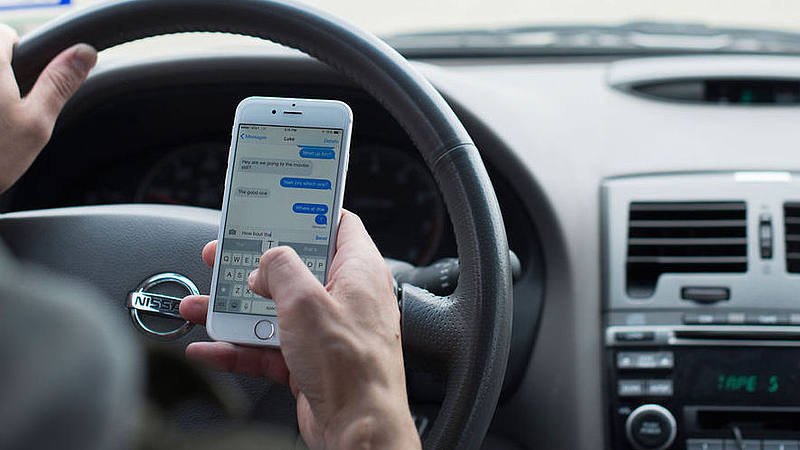Il Barometro della guida responsabile della Fondazione Vinci Autoroutes evidenzia molte cattive abitudini al volante, soprattutto da parte degli under 35.
Al volante con uno smartphone in mano, con la cintura di sicurezza slacciata o sotto l’effetto di alcool e droghe. È una fotografia preoccupante quella che emerge dal 13° Barometro della guida responsabile realizzato dalla Fondazione Vinci Autoroutes, l’indagine annuale che presenta una panoramica sui comportamenti di guida degli europei.
Le cattive abitudini più frequenti: smartphone e uso di alcool e droghe
Realizzata da Ipsos su un campione di 12.400 cittadini in 11 diversi paesi del continente, la ricerca evidenzia quanto siano diffusi i comportamenti rischiosi, in particolar modo fra gli under 35: il 30 per cento non indossa sempre la cintura di sicurezza e il 23 per cento guarda video mentre guida; e ancora, il 17 per cento dei più giovani ammette di mettersi al volante dopo aver consumato droghe e il 12 per cento in stato di ebbrezza. Obiettivo del Barometro della guida responsabile è quello di seguire l’evoluzione dei comportamenti a rischio e le buone pratiche per contribuire, in particolare, a orientare meglio i messaggi di prevenzione.
Ad esempio, l’edizione 2023 dell’indagine mostra come gli automobilisti siano sempre più disinibiti nell’inosservanza delle regole della strada e degli altri utenti: non a caso, ben l’84 per cento degli intervistati dichiara di aver avuto paura di comportamenti aggressivi da parte di chi si mette al volante. “Sebbene gli automobilisti siano consapevoli dei pericoli legati all’uso dello smartphone durante la guida, alla mancanza di sonno o all’uso di alcool o droghe – spiega Bernadette Moreau, delegata generale della Fondazione Vinci Autoroutes – hanno sempre più difficoltà ad accettare le limitazioni legate alla guida di un veicolo. I giovani, in particolare, cercano un compromesso tra le sollecitazioni della vita sociale e una guida sicura, anche se ciò significa correre dei rischi”.
Condivido con voi tramite #steemlinks gli articoli che mi colpiscono in modo particolare, se ne avete voglia potete trovare l'articolo completo quì Lifegate
Faccio difficoltà a capire perchè siamo così imprudenti e superficiali quando guidiamo, eppure gli incidenti automobilistici più o meno gravi, si incontrano quotidianamente ma ci comportiamo come se non ci riguardassero.
Secondo i dati della Commissione Europea, nel 2022 ci sono stati 21 mila morti per incidenti stradali in Europa, e ben 1.489 in Italia!
La verità è che basta davvero pochissimo, e non dipende da quanto siamo bravi alla guida ma soltanto da quanto siamo attenti o distratti.
Sicuramente è necessaria una informazione e una comunicazione più efficace per cercare di sensibilizzare gli automobilisti ad essere più prudenti!
Tantissime energie positive a tutti voi
Grazie per il tempo dedicato a leggere il mio post
ENGLISH VERSION
The Vinci Autoroutes Foundation's Responsible Driving Barometer highlights many bad habits at the wheel, especially among the under-35s.
At the wheel with a smartphone in hand, with the seatbelt unfastened or under the influence of alcohol or drugs. It is a worrying picture that emerges from the 13th Responsible Driving Barometer carried out by the Vinci Autoroutes Foundation, the annual survey presenting an overview of Europeans' driving behaviour.
The most frequent bad habits: smartphones and alcohol and drug use
Realized by Ipsos on a sample of 12,400 citizens in 11 different countries of the continent, the research highlights how widespread risky behaviour is, especially among the under-35s: 30 per cent do not always wear their seatbelts and 23 per cent watch videos while driving; and 17 per cent of the youngest admit to getting behind the wheel after consuming drugs and 12 per cent in a state of drunkenness. The aim of the Responsible Driving Barometer is to track the evolution of risky behaviour and good practices to help better target prevention messages.
For example, the 2023 edition of the survey shows how motorists are increasingly uninhibited in disregarding the rules of the road and other road users: not surprisingly, as many as 84 per cent of respondents say they have been afraid of aggressive behaviour by those behind the wheel. "Although motorists are aware of the dangers of using a smartphone while driving, lack of sleep or the use of alcohol or drugs," explains Bernadette Moreau, general delegate of the Vinci Autoroutes Foundation, "they find it increasingly difficult to accept the limitations of driving a vehicle. Young people, in particular, seek a compromise between the stresses of social life and safe driving, even if it means taking risks'.
I share with you via #steemlinks the articles that particularly strike me, if you feel like it you can find the full article here Lifegate
I find it hard to understand why we are so careless and superficial when we drive, yet car accidents, more or less serious, are encountered daily but we act as if they do not concern us.
Yet according to European Commission figures, in 2022 there were 21,000 road deaths in Europe, and as many as 1,489 in Italy!
The truth is that it takes very little, and it does not depend on how good we are at driving but only on how careful or distracted we are.
Surely more effective information and communication is needed to try to make drivers more aware of being more careful!
Lots of positive energy to you all
Thank you for taking the time to read my post

